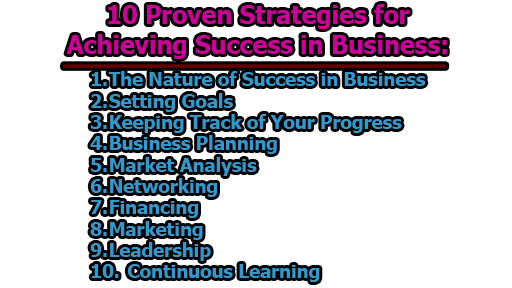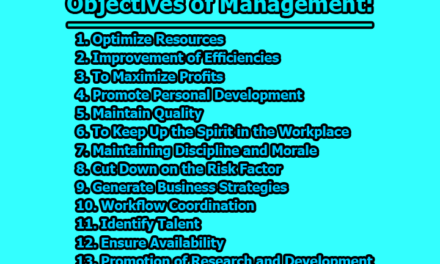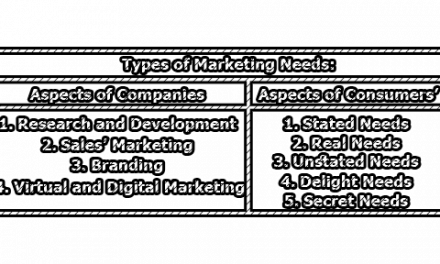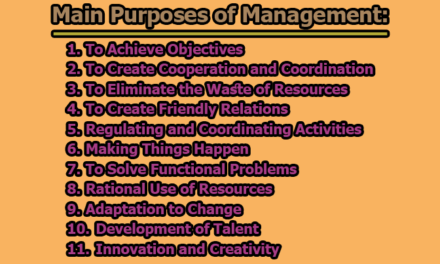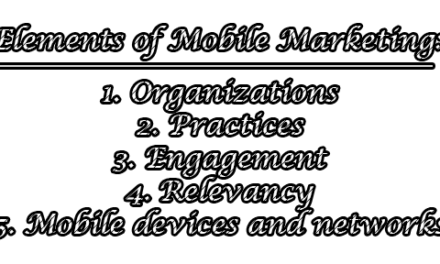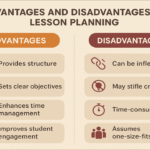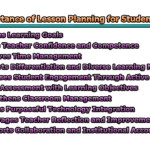10 Proven Strategies for Achieving Success in Business:
Business success is a result of systematic planning and execution. There are several strategies that have been proven effective for businesses to achieve success. These strategies are not limited to a particular industry or type of business but are essential for any business. In this article, we will discuss 10 proven strategies that can help you achieve success in your business.
1. The Nature of Success in Business: Success in business is achieved when you can meet the needs of your customers by providing them with products or services that are of value to them. Business success is not achieved overnight. It requires a lot of hard work, dedication, and discipline.
2. Setting Goals: Setting goals is the first step towards achieving success in business. It provides a clear direction for your business and helps you to prioritize your activities.
The Importance of Goal Setting: Goal setting is essential in business because it:
- Provides a clear direction
- Helps you to focus on what is important
- Helps you to prioritize your activities
- Provides motivation and a sense of accomplishment
Smart Goal Setting: Smart goal setting involves setting goals that are:
- Specific
- Measurable
- Achievable
- Relevant
- Time-bound
3. Keeping Track of Your Progress: Monitoring your progress is essential to achieving your goals. It helps you to identify areas where you are falling behind and allows you to adjust your strategy accordingly.
4. Business Planning: Business planning involves creating a roadmap for your business. It provides a clear direction for your business and helps you to prioritize your activities.
Importance of Business Planning: Business planning is essential for your business because it:
- Provides a clear direction
- Helps you to focus on what is important
- Helps you to prioritize your activities
- Provides motivation and a sense of accomplishment
Creating a Business Plan: A good business plan should include:
- Executive summary
- Company description
- Market analysis
- Marketing and sales strategy
- Financial projections
Implementing Your Business Plan: Implementing your business plan involves:
- Recruiting employees
- Setting up your office or workspace
- Setting up your website and social media accounts
5. Market Analysis: Market analysis involves understanding the market you are operating in, identifying your target market, and analyzing your competition.
Understanding the Market: Understanding the market involves:
- Identifying the needs of your target market
- Understanding the trends in your industry
- Understanding the consumer behavior in your market
Identifying Your Target Market: Identifying your target market involves:
- Identifying the demographic characteristics of your ideal customers
- Understanding the needs and preferences of your target market
Analyzing Your Competition: Analyzing your competition involves:
- Identifying your competitors
- Analyzing their strengths and weaknesses
- Identifying opportunities and threats
6. Networking: Networking involves building relationships with other businesses and professionals in your industry.
Building Relationships for Success: Building relationships is essential for success because it:
- Helps you to learn from others
- Helps you to find new opportunities
- Helps to build your reputation
- Generates referrals
Networking Tips: Some useful networking tips include:
- Always carry business cards
- Attend networking events regularly
- Follow up with people after meeting them
- Offer to help others
Using Online Platforms to Expand Your Network: Using online platforms such as LinkedIn can help you to expand your network.
7. Financing: Financing involves securing funding and budgeting for success.
Securing Funding: Securing funding involves:
- Applying for loans
- Pitching to investors
- Crowdfunding
Budgeting for Success: Budgeting for success involves:
- Creating a budget
- Tracking your expenses
- Adjusting your budget as needed
8. Marketing: Marketing involves crafting an effective marketing strategy, determining your unique selling proposition, and utilizing digital marketing.
Crafting an Effective Marketing Strategy: Crafting an effective marketing strategy involves:
- Identifying your target market
- Determining your unique selling proposition
- Choosing the right channels for your message
Determining Your Unique Selling Proposition: Your unique selling proposition is what sets you apart from your competitors. It involves identifying what makes your product or service unique and valuable.
Utilizing Digital Marketing: Digital marketing involves using digital channels such as social media and email marketing to reach your target market.
9. Leadership: Leadership involves developing effective leadership skills, team building, and managing your team effectively.
The Importance of Leadership: Effective leadership is essential for success because it:
- Provides direction
- Inspires and motivates employees
- Builds trust and respect
Developing Effective Leadership Skills: Developing effective leadership skills involves:
- Understanding your strengths and weaknesses
- Identifying areas for improvement
- Continuously learning and growing
Team Building: Team building involves:
- Understanding team dynamics
- Identifying individual strengths and weaknesses
- Encouraging teamwork and collaboration
Creating a Strong Team: Creating a strong team involves:
- Hiring the right people
- Providing training and development opportunities
- Encouraging open communication
Managing Your Team Effectively: Managing your team effectively involves:
- Setting clear expectations
- Providing feedback and coaching
- Recognizing and rewarding good performance
10. Continuous Learning: Continuous learning involves the process of acquiring knowledge and skills throughout your career.
The Role of Continuous Learning in Business Success Continuous learning is essential for success because it:
- Helps you to stay up to date with industry trends and best practices
- Helps you to improve your skills and knowledge
- Enables you to adapt to change
Strategies for Continuous Learning: Strategies for continuous learning include:
- Reading books and industry publications
- Attending conferences and seminars
- Taking online courses
In conclusion, achieving success in business requires a combination of hard work, dedication, and discipline. By implementing these proven strategies, you can increase your chances of success in your business.
FAQs:
What should you do if your initial plan fails?
If your initial plan fails, you should reevaluate your strategy, identify areas for improvement, and adjust your plan accordingly.
How important are other people in your business’s success?
Other people are essential for business success. They can provide advice, support, and connections that can help you to succeed.
Should you be open to criticism?
Yes, you should be open to criticism. Criticism can help you to identify areas for improvement and grow as a leader and business owner.
What is the most important skill for a business owner?
The most important skill for a business owner is effective communication.
When is the best time to start a business?
The best time to start a business is when you have a clear idea, a plan, and the necessary resources. However, timing can also be influenced by external factors such as market conditions and competition.

Assistant Teacher at Zinzira Pir Mohammad Pilot School and College

